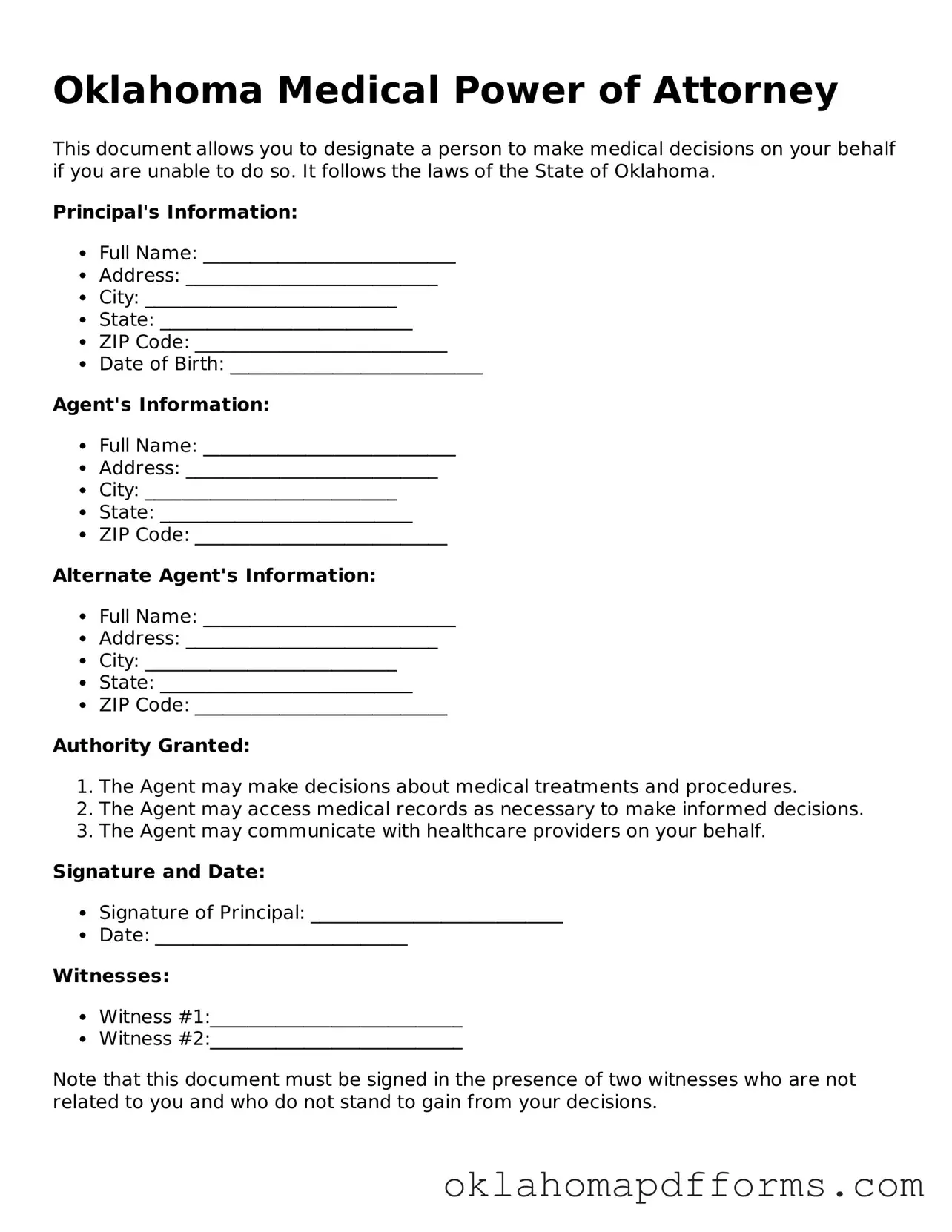What is a Medical Power of Attorney in Oklahoma?
A Medical Power of Attorney is a legal document that allows you to appoint someone to make medical decisions on your behalf if you become unable to do so. This designated person, known as your agent or attorney-in-fact, will have the authority to make healthcare choices based on your preferences and best interests when you cannot communicate your wishes.
Who can be appointed as my agent?
You can choose any competent adult to serve as your agent. This can be a family member, friend, or trusted advisor. However, it is crucial to select someone who understands your values and wishes regarding medical treatment. In Oklahoma, your agent cannot be your healthcare provider or an employee of your healthcare provider unless they are related to you.
How do I create a Medical Power of Attorney in Oklahoma?
To create a Medical Power of Attorney, you must complete a form that complies with Oklahoma law. You can find templates online or consult with an attorney for assistance. Once completed, you must sign the document in the presence of a notary public or two witnesses who are not your agent or related to you. This ensures that the document is legally binding.
Can I change or revoke my Medical Power of Attorney?
Yes, you can change or revoke your Medical Power of Attorney at any time as long as you are mentally competent. To revoke it, simply create a new document stating that you are revoking the previous one, or destroy the existing document. Inform your agent and any healthcare providers about the changes to ensure your current wishes are known.
What happens if I do not have a Medical Power of Attorney?
If you do not have a Medical Power of Attorney and become incapacitated, medical decisions will be made by your family members or, in some cases, by a court-appointed guardian. This can lead to disputes among family members and may not reflect your personal wishes. It is advisable to have a Medical Power of Attorney in place to ensure your preferences are honored.
Is a Medical Power of Attorney the same as a Living Will?
No, a Medical Power of Attorney and a Living Will serve different purposes. A Medical Power of Attorney appoints someone to make decisions for you, while a Living Will outlines your wishes regarding end-of-life care and medical treatments. Both documents can work together to provide comprehensive guidance regarding your healthcare preferences.
Do I need to file my Medical Power of Attorney with the state?
No, in Oklahoma, you are not required to file your Medical Power of Attorney with the state. However, it is essential to keep the document in a safe place and provide copies to your agent, healthcare providers, and family members. This ensures that your wishes are readily accessible when needed.

